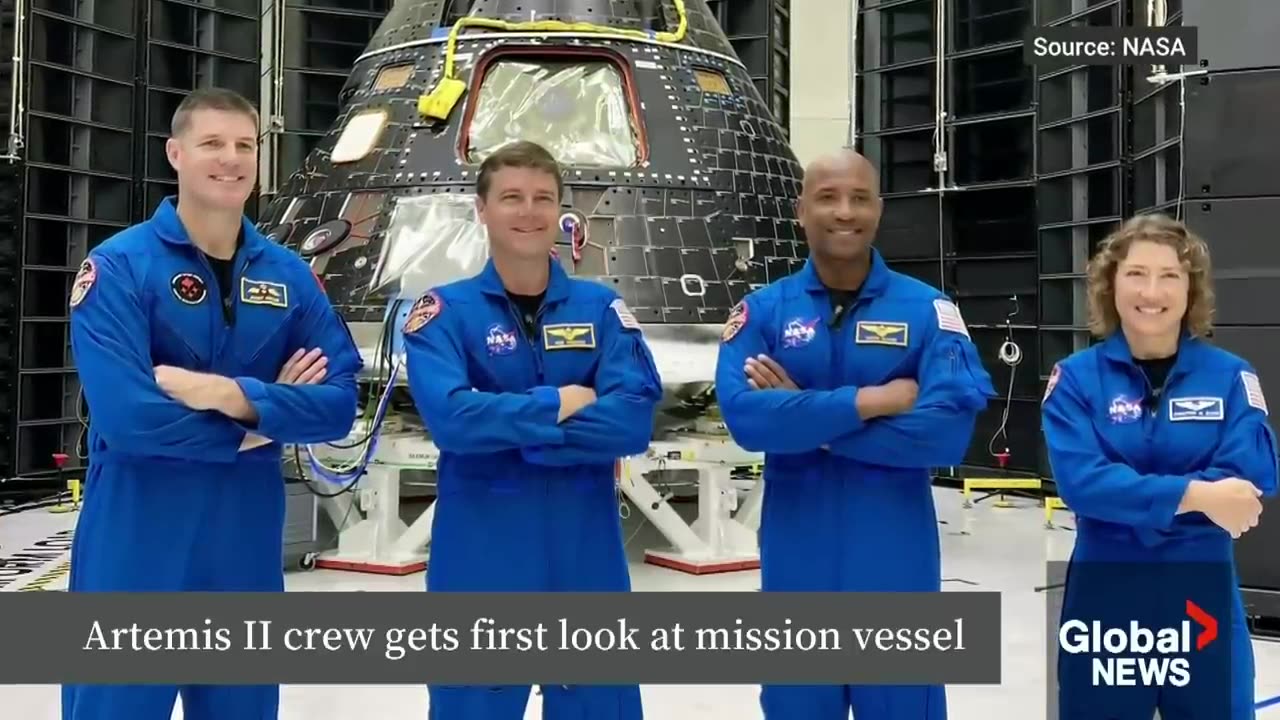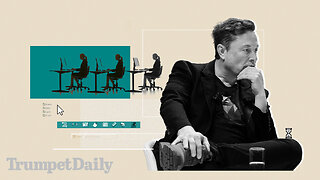Premium Only Content

Global National: Aug. 8, 2023 | NASA prepares for Artemis II launch as space race with China looms
On this episode: The Artemis II crew, including Canadian astronaut Jeremy Hansen, has taken its first look at the spacecraft which will fly the group around the moon in November 2024. As Mike Drolet reports, time is of the essence for NASA as it aims to beat China to the punch in an intensifying space race.
The construction cost overruns for the Trans Mountain pipeline are ballooning to staggering levels. Heather Yourex-West explains how the company's plans to offset those costs have backfired and speaks with one former construction manager about how the expansion project was troubled from the start.
Canadian Conservative leader Pierre Poilievre has built his reputation as an outspoken critic of the federal Liberal government and Prime Minister Justin Trudeau. Now, the party is trying to showcase Poilievre's softer side. Mackenzie Gray explains how Poilievre's family is a part of this advertising blitz and the key voters being pursued.
Multiple Canadian media outlets are urging the Competition Bureau to do something about Meta blocking news content. It's in retaliation to the Online News Act, also known as Bill C-18, which calls on tech giants to compensate the media for their journalism. Australia tried something similar in 2021, but people in that country can still view content on Facebook and Instagram. Touria Izri looks at the standoff here and how Australia was able to resolve the conflict.
When Ukraine launched its highly anticipated summer counteroffensive against Russia, there were hopes it would mark a turning point in the war. But as Crystal Goomansingh reports, Ukraine's progress has slowed, despite the West's significant financial and military contributions.
Plus, some companies are experimenting with four-day workweeks, in an effort to get workers to do the same amount of work in a shorter amount of time. Anne Gaviola explains how the concept is leading to a better work-life balance for employees, while companies are still benefiting.
A team of Korean scientists says it has synthesized a superconducting material called "LK-99," which could make many things, including power lines, batteries, travel, and health care far more efficient – if it's true. Redmond Shannon explains why optimism is fading about the claims.
-
 55:07
55:07
LFA TV
1 day agoDefending the Indefensible | TRUMPET DAILY 2.25.25 7PM
65.9K21 -
 6:09:26
6:09:26
Barry Cunningham
22 hours agoTRUMP DAILY BRIEFING - WATCH WHITE HOUSE PRESS CONFERENCE LIVE! EXECUTIVE ORDERS AND MORE!
202K80 -
 1:46:37
1:46:37
Game On!
16 hours ago $7.46 earnedPUMP THE BRAKES! Checking Today's Sports Betting Lines!
109K4 -
 1:27:21
1:27:21
Redacted News
16 hours agoBREAKING! SOMETHING BIG IS HAPPENING AT THE CIA AND FBI RIGHT NOW, AS KASH PATEL CLEANS HOUSE
251K319 -
 1:08:28
1:08:28
In The Litter Box w/ Jewels & Catturd
1 day agoCrenshaw Threatens Tucker | In the Litter Box w/ Jewels & Catturd – Ep. 749 – 2/25/2025
149K64 -
 44:57
44:57
Standpoint with Gabe Groisman
1 day agoWill Byron Donalds Run for Florida Governor? With Congressman Byron Donalds
79.8K11 -
 1:06:25
1:06:25
Savanah Hernandez
15 hours agoEXPOSED: FBI destroys evidence as NSA’s LGBTQ sex chats get leaked?!
98.9K40 -
 1:59:58
1:59:58
Revenge of the Cis
17 hours agoEpisode 1452: Hindsight
82.4K13 -
 1:20:35
1:20:35
Awaken With JP
19 hours agoCrenshaw Threatens to Kill Tucker and Other Wild Happenings - LIES Ep 80
145K94 -
 1:32:19
1:32:19
Russell Brand
18 hours agoBREAK BREAD EP. 15 - LECRAE
154K11